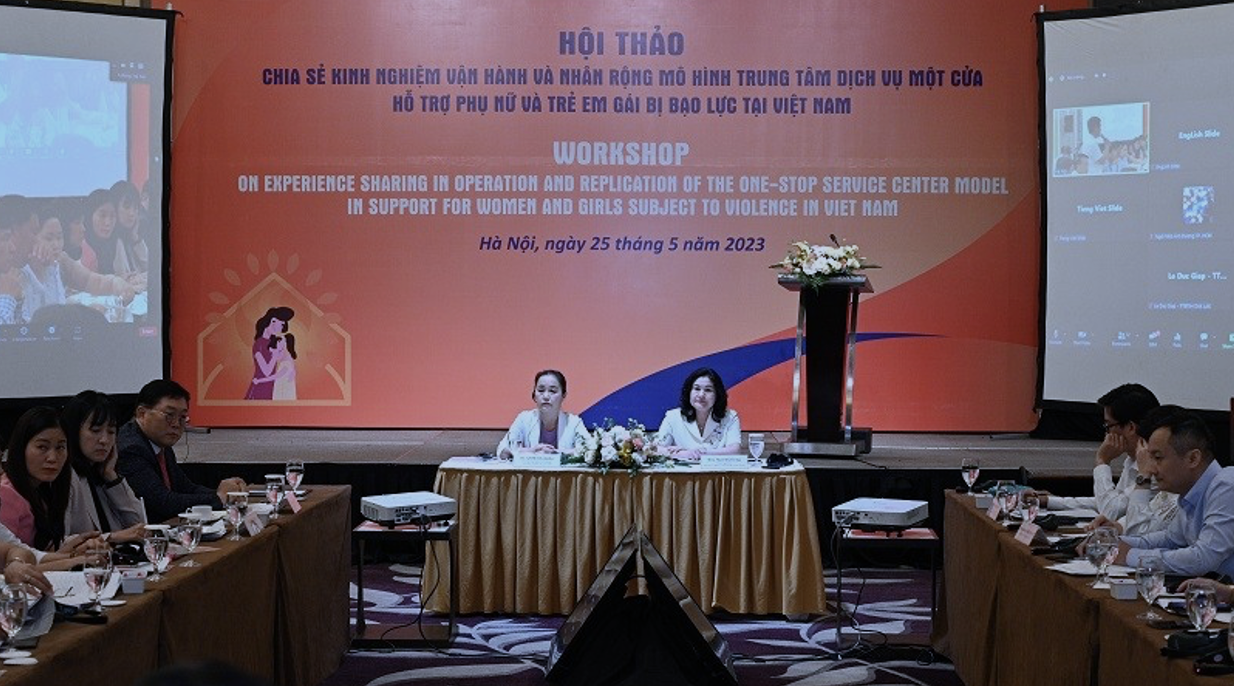
The workshop "Sharing experiences in operating and replicating the One-Stop Service Center model to support women and girls experiencing violence in Vietnam" was recently organized by the Ministry of Labor, War Invalids and Social Affairs (MoLISA), the United Nations Population Fund (UNFPA) and the Korea International Cooperation Agency (KOICA).
This is an activity within the framework of UNFPA's project entitled "Continuing activities of the project to build a model to respond to violence against women and girls in Vietnam, carried out from July 2022 to June 2023". The project aims to ensure the sustainability of the One-Stop Service Center model, or Sunshine House in Vietnam.
After more than 2 years of operation, the model has affirmed its effectiveness and superiority in providing support services for people suffering from gender-based violence.
At the conference, delegates shared difficulties as well as experiences, methods and proposed solutions and initiatives to improve service quality, operation and replication of the One Service Center model to support women and girls experiencing violence in Vietnam.
At the same time, they agreed that replicating the One-Stop Service Center model is completely consistent with Vietnam's laws, policies and priorities in preventing and responding to gender-based violence and domestic violence. They emphasized the need for coordination and participation of relevant agencies in implementing support activities for people suffering from gender-based violence and domestic violence.
Deputy Minister of Labor, War Invalids and Social Affairs Nguyen Thi Ha said that in recent times, Vietnam has always made efforts to implement measures to promote gender equality and prevent and respond to gender-based violence, especially violence against women and girls.
With the perspective of taking people experiencing violence as the center in the service provision process, discussing solutions to replicate the model of one-stop service centers like Sunshine House is very necessary and important to support people experiencing gender-based violence to access integrated, essential and quality services.
According to Ha, this requires the participation of state agencies at all levels, especially there must be an inter-sectoral coordination mechanism between agencies in giving support to people experiencing gender-based violence.
Ms. Naomi Kitahara, UNFPA Chief Representative in Vietnam, emphasized that the introduction of the One-Stop Service Center model is to detect and prevent acts of violence and provide support to people experiencing violence.
In Vietnam, UNFPA wants to ensure that all women and girls in Vietnam, including the most vulnerable, have the right to live a life free of violence and harm of dignity. Women and girls will not be left behind in the efforts to achieve the 2030 Sustainable Development Goals.
According to the 2019 UNFPA-supported National Survey on violence against women, nearly 2 out of every 3 women aged 15 - 64 experienced at least one form of physical, sexual, psychological and/or economic violence in life.
Gender-based violence is a hidden issue, with more than 90% of people experiencing violence not seeking help from public services and half of women who have experienced violence not sharing it with anyone. Gender-based violence causes significant damage to the Vietnamese economy, with estimated costs accounting for 1.81% of GDP.
Thuy Vi